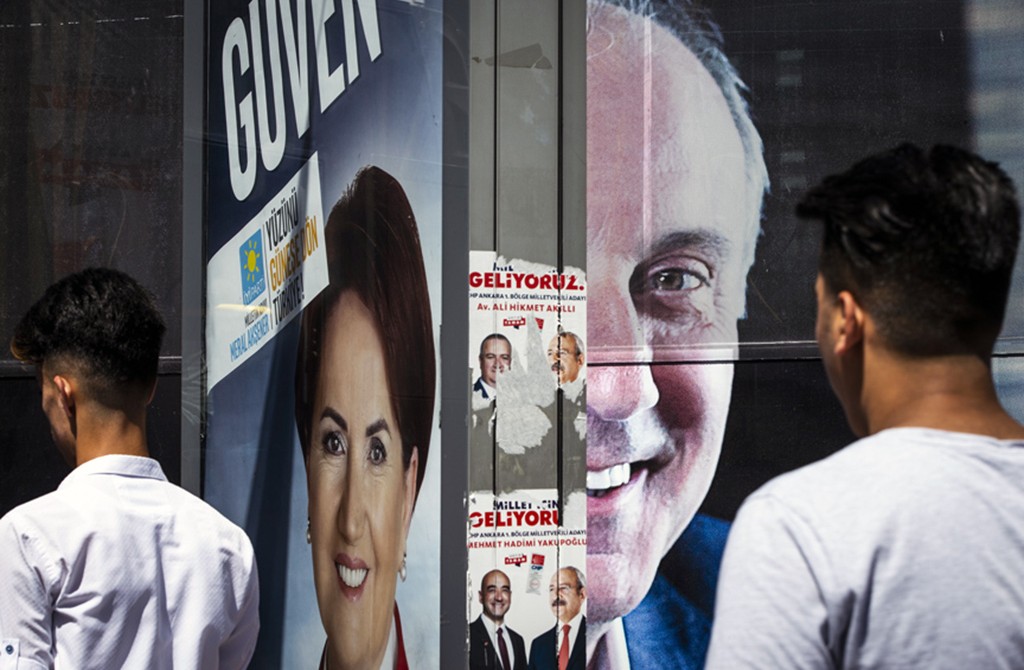European countries have been “otherizing” Turkey for the last five years. It seems when it comes to criticizing Turkey, EU institutions and European countries are willing to set aside their differences and problems to obsess about Turkey’s domestic and foreign developments. Despite its own numerous challenges and potential threats to tackle, EU institutions, such as its council, commission and Parliament, have instead wasted time bashing Turkey for a variety of reasons.Since the Gezi protests in June 2013, the EU and European countries have been exploiting every Turkish domestic development to alienate Turkey. Although they claim that they want to force Turkey to continue its democratization process and improve its human rights policies, European institutions and countries have been supporting destabilizing actors in Turkey and thus contributing to the political instability of the country.
The increase of ultra-nationalism, fascism, racism, xenophobia, anti-Islamism and anti-Turkism has been welcomed by many. Attacks against refugees and foreigners – especially against Muslims and Turks – have dramatically increased in the last several years. Even mainstream politicians have begun to normalize this trend. Animosity against Islam, Turkey and President Recep Tayyip Erdoğan is quite widespread in Europe. European countries have threatened Erdoğan and Justice and Development Party (AK Party) supporters to deter them from supporting Erdoğan and his party. While European governments punish companies providing platforms to pro-AK Party groups, private companies and governmental institutions supporting the opposition – and sometimes even illegal groups – have been able to freely spread anti-Erdoğan propaganda and organize events.
The reactions of mainstream German media and some groups to German football players of Turkish origin Mesut Özil and İlkay Gündoğan is only one example of this repressive attitude. One photo with Erdoğan was enough for some Germans to protest the footballers during a match of their national team.
European countries and politicians have begun to undermine democracy and liberal values. Instead they support terrorist organizations and coup plotters who tried to terminate democratic institutions and to remove elected government and politicians, as they did in other Middle Eastern countries such as Egypt. Some media platforms, such as the French journal Le Point, went even further, portraying Erdoğan as a dictator – only to turn around and label Saudi Crown Prince Mohammad bin Salman a reformer.
The European approach toward the June 24 elections in Turkey has reinforced this anti-Turkey and anti-Erdoğan stance. European countries are pushing for an administrative change in Turkey. In fact, they have mobilized diplomatic, political, economic and financial resources to overthrow Erdoğan’s government. European media platforms demonize Erdoğan more than any other leader in the world and in doing so, bypass their neutrality toward the Turkish elections all together. European governments have welcomed anti-Turkey groups, such as the PKK, the Gülenist Terror Group (FETÖ) and many other illegal groups, with open arms.
More recently, European states have established an anti-Erdoğan and anti-AK Party international coalition for the run up to the elections.
This trend reflects the shallowness of European politics. European politicians need to remember that otherizing Turkey and encouraging animosity toward Erdoğan will not solve their problems. On the contrary, anti-Turkey and anti-Erdoğan perspectives distract Europeans from their real problems. The nature of EU-Turkey relations has shifted because the two sides have changed dramatically. Many European leaders openly declare the impossibility of full EU membership for Turkey because of its independent political discourse. But in the end, although the new Turkey still wants a strategic partnership with the EU, it no longer considers full EU membership a vital destination.
During his time in office, Erdoğan has ended the hierarchical Europe-Turkey relations and initiated a new era in bilateral relations based on reciprocity. That is, Turkey under Erdoğan requires equal partnerships and European countries must recognize this reality. Therefore, the June 24 elections are the last obstacle in Turkey’s path of change and will be a turning point for European-Turkish relations. If Erdoğan wins, European countries will have to adjust to the new Turkey; otherwise, Europeans may lose an important ally with an emerging economy and substantial military power during the current systemic transitory period.
[Daily Sabah, 20 June 2018]
In this article
- Opinion
- 2013
- 2018
- 2018 Elections
- Anti-Erdoğanizm
- Anti-Islam
- Anti-Muslim
- Anti-Turkish Sentiment | Anti-Turkism | Turkophobia | Turkish Fear
- Daily Sabah
- Early Elections in Türkiye
- Egypt
- Elections
- EU Membership
- Europe
- European Union (EU)
- Fethullah Terrorist Organization (FETÖ)
- Football
- Global Actors | Local Actors
- Gülen Movement
- Gülenist Terror Group
- Gülenist Terror Organization
- Hizmet Movement
- HTS
- Human Rights
- Islam
- Islamophobia
- Istanbul
- Kurdistan Workers' Party Terrorist Organization (PKK)
- May 28-August 20 2013 The Gezi Park Protests
- Middle East
- Mohammed bin Salman (MBS)
- Muslim
- Opposition
- PKK - YPG - SDF - PYD - YPJ - SDG - HBDH - HPG - KCK - PJAK - TAK - YBŞ
- Racism
- Recep Tayyip Erdoğan
- Saudi Arabia
- Saudi Crown Prince
- Snap Elections
- Strategic Partnership
- taksim
- The President of the Republic of Türkiye
- Turkish President
- Türkiye's Elections
- Türkiye's Elections 2018
- Türkiye's Justice and Development Party | AK Party (AK Parti)
- Xenophobia



